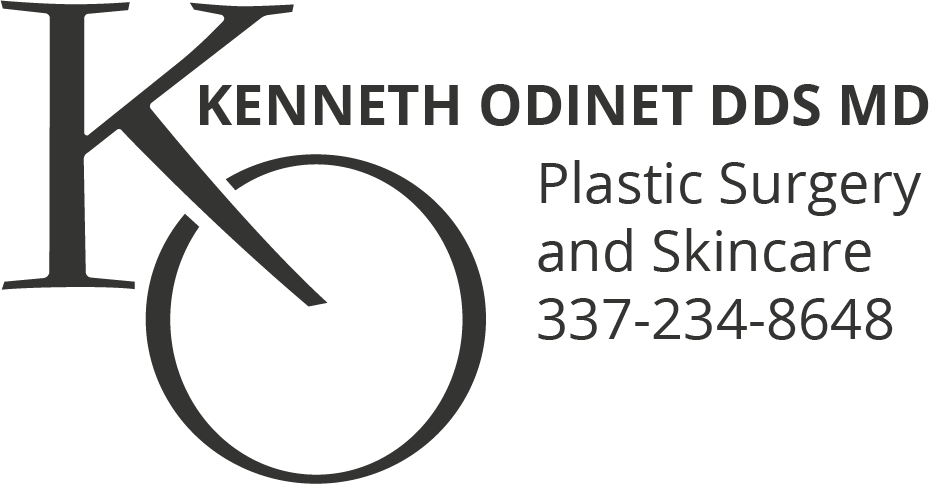How to Prepare for Cosmetic/Plastic Surgery
You may not think twice about having cosmetic surgery to make you look and feel better. What you may not realize, however, is that this is still surgery. Plan in advance in order to make your recovery go faster and without complications. We’ve broken it down for you into three areas where you can be most prepared:
Mental
You’ve got to be at ease both mentally and physically with the idea of having your operation before you proceed with it. If not, you’ll be overly anxious as the surgery approaches.
Dr. Odinet and his staff will provide you with one-on-one information about your particular procedure. You will also receive several pamphlets to review after your consult. Please read them. Know the process like the back of your hand, so that you won’t encounter any big surprises that might scare you. If you do come across something that concerns you, please feel free to call the office. One of the nurses will be happy to explain the situation and discuss your concerns in depth.
Don’t be shy to ask any questions of Dr. Odinet and his staff. Make notes during the conversation, so you can re-read what you have discussed. It’s natural to forget some details. Questions can be asked at the consult, at the preoperative visit or the morning of surgery. Our staff will make sure all of your questions have been answered before surgery. Rest assured Dr. Odinet will visit with you one last time before surgery. This will give you yet another opportunity to settle any issues.
The eve before your surgery can be stressful. You may feel ill or irritable. It’s natural to not sleep well. Some people even develop high blood pressure from stress. Know this ahead of time and deal with it through deep breathing or meditation techniques. Watch a funny movie. Pamper yourself to melt away the tension.
Because of the stress and tension that built up before the operation, it’s normal to feel drained, even depressed after the procedure. The first three days are usually the worst. You’ll see the scar, and that may not help to lift your spirits. Once the swelling subsides, the bandages are removed, and the scarring heals, the new you will emerge. All those years of saving and anticipation will finally seem worthwhile. You’ll be able to discover a brand new you. Sometimes it is easier if you can speak to someone who knows what you are going through, and you don’t have to carry the burden of “no one” knowing.
Internal
Ask Dr. Odinet if he recommends any pre-surgery regimens on your part to prepare for your surgery. For example, if you’re having a tummy tuck, you may first need to lose a few pounds. If you’re having a breast augmentation, you may have to stop taking hormones and birth control pills to prevent breast tissue inflammation.
Alcohol and cigarettes don’t help you before surgery, so stop them a few weeks before to clear the toxins to improve healing. Nicotine constricts blood flow, which may increase your chances of infection, incision breakdown and worsening of your scars. Dr. Odinet encourages patients to quit smoking at least 2 weeks prior to surgery. You will also be asked to refrain from taking certain drugs and over-the-counter medications that can increase the chance of bleeding, bruising and swelling. Anything with aspirin increases your bleeding tendencies. Our office will provide you with a complete list of herbals and over-the-counter medications that affect this.
External
Get your home ready. Chances are you’ll be in some pain and need bed rest. Get your prescriptions filled ahead of time. Clean linens in place are important. Arrange for someone to take care of your dog. Animals are our best friends, but they also increase chances of infection. While your incision is healing, Dr. Odinet encourages you to stay away from your pet. Do not to sleep with your pet. Launder any clothing or linens that have come into contact with your furry, feathery friend. It is also important to be extremely cautious and wash your hands multiple times during the day or any time when in contact with the incisions or drains.
Stock your refrigerator. You won’t want to cook, visit the grocery or have a delivery person meet you at the front door. Cook and freeze food in advance. Stock up on lots of drinks, too. Soft foods like yogurts, soups and cottage cheese may be in order. On the day of surgery, it is recommended to increase your fluids and eat bland foods in small portions. Most people avoid anything spicy, greasy or dairy that first day after surgery. Remember to watch the salt. Salt makes you swollen and can increase your blood pressure, which may increase your bleeding.
Get comfy pillows and blankets. Sometimes pillows under the knees decrease tension on the abdominal incisions. Pillows under your arms provide comfort after breast surgery.
Purchase your favorite magazines, movies, munchies—and ice packs! Ice packs can decrease swelling and soothe aches and pains. The nurse will let you know if ice is encouraged for your type of surgery.
Arrange for a close friend to be there to take you home. If they can be around for a few days after your surgery to take care of you, you’ll be set. Someone strong and capable, who can deal with the stressful situations you might find yourself in, is a gem. It is encouraged that this person to be 18 years of age or older.
Finally, stay out of the sun to speed recovery and prevent “staining” of your scars. Tanning in the sun can increase scarring. The heat from UV lamps in tanning beds can open incisions. It is encouraged to refrain from tanning beds for 3 months following your surgery.


